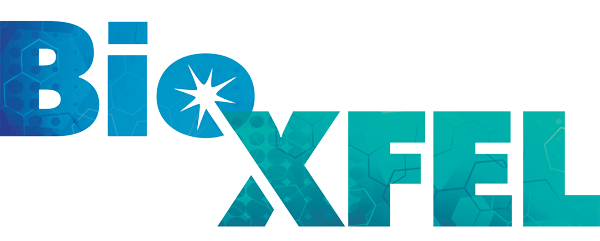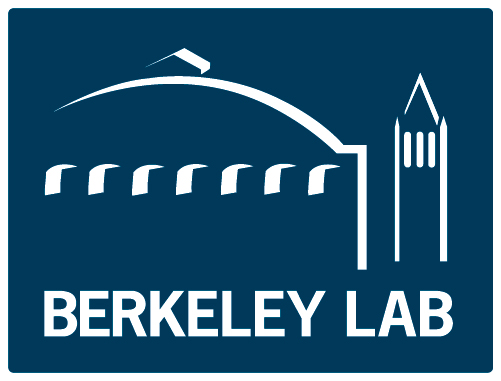Opportunities
Positions posted based on availability and relationship to the Center. To post your job opening here, please contact BioXFEL
The RCSB Protein Data Bank at Rutgers University is looking to fill three new positions described below: 
- Scientific Software Developer (UCSD)
The RCSB PDB is seeking a Scientific Software Developer with skills as a seasoned, experienced bioinformatics programming professional and a broad understanding of computational algorithms.
The incumbent will develop, implement, and maintain complex scientific and web-based software systems for the RCSB Protein Data Bank (PDB; http://www.rcsb.org) at the University of California San Diego (UCSD).
The Scientific Software Developer will work closely and collaboratively with other software developers and scientists at the San Diego Supercomputer Center (SDSC) and the RCSB PDB partner sites to expand RCSB.org's functionality and reliability as a premier biological data and information resource. S/he will develop new scalable algorithms for the mining and analysis of the rapidly growing PDB archive using leading edge Big Data technologies, design and implement user interfaces for the query, analysis, reporting, and visualization of 3D structural information and associated annotations, as well as integrate external database resources with RCSB PDB to provide a structural view of biology. The incumbent will help lead the design of databases and data warehouses to store and aid in the query of data and be actively involved in the software development process, maintenance and system standards for analysis algorithms, tools, and infrastructure.
Additionally, the incumbent will serve as an expert on relevant scientific and technical aspects of the various web, web services, and database components of the RCSB PDB. S/he will stay abreast of the latest development in structural and computational biology and new technologies, apply advanced bioinformatics concepts to design, develop, modify, debug, and evaluate highly complex software programs and web tools, and translate scientific problems into scalable and maintainable software solutions that meet end-user needs. The incumbent will also further science through Scientific Publications, written in collaboration with our team.
Apply at UCSD: https://jobs.ucsd.edu/bulletin/job.aspx?jobnum_in=104863
- Postdoctoral Researcher (UCSD)
We are seeking a talented, highly motivated postdoctoral researcher to join the multidisciplinary team of the RCSB Protein Data Bank at UC San Diego, San Diego Supercomputer Center (SDSC).
The successful applicant will work on research projects that drive next generation search tools at rcsb.org. Dealing with redundancy within the Protein Data Bank (PDB) is an important challenge in face of the ~10% year-on-year growth in structural data stored in the PDB. Tackling the redundancy problem requires understanding of similarities and differences among macromolecules at many different levels. She/he will be expected to contribute to this project by devising new and improved algorithms for protein family classification at levels such as biological assemblies. The ultimate aim of this project is to improve the findability of data in the PDB by building the next generation search engine for structural molecular biology.
Note, this position is reviewed annually on the basis of performance and can be renewed.
Requirements
Ph.D. in one of the following research areas:
Computer Science with a focus on Bioinformatics
Structural Bioinformatics, or related field with a focus on software development
Structural Biology with a focus on software development
Qualifications
Demonstrated proficiency in a high-level programming language, such as Java, Python, C++, and experience with state of the art software engineering tools.
Strong skills in problem solving and algorithm design are required.
A background in NoSQL database technologies would be beneficial.
Experience in development of modern web applications, user interface design, or scientific visualization would also be a plus.
We expect candidates to have shown high productivity demonstrated by publications and contributions to open source software projects.
Excellent written and oral communication skills are required.
Apply at UCSD: https://apol-recruit.ucsd.edu/JPF02453
- Scientific Web Application Developer (Rutgers)
Research Associate
Summary
We are looking for a full-stack developer with a minimum of five years experience using modern database and web technologies. The candidate should enjoy engaging with other developers and scientists in a collaborative team environment.
The work at the PDB focuses on data analysis and transformation, and the presentation and visualization of data using complex interactive graphical user interfaces. An important aspect of the work is to provide our users with the ability to search and explore the data in the PDB Archive. Solutions are implemented using a wide range of custom components developed and maintained at the RCSB PDB, in addition to third-party tools, libraries, frameworks and technologies.
The candidate should be comfortable working in a fast-changing environment, and be able to demonstrate an ability to think creatively, generate new ideas, and implement solutions. The candidate should also show an eagerness and willingness to learn new skills and master new technologies.
The team at RCSB consists of a group of highly-skilled bio-curators, scientists, software developers, designers, and educators, working in a lively and fast-paced environment.
The successful candidate will be able to take full advantage of the benefits of working at an academic institution. Employees are encouraged to engage in professional development, either by attending seminars and training workshops, or by enrolling, tuition-free, in courses provided by Rutgers.
Requirements
Ideally the candidate should have in-depth experience with several of the following technologies, languages, and frameworks, or have experience with comparable or related technologies:
Relational and document databases (MySQL, MongoDB), search tools (ElasticSearch, GraphQL), Java, Python, Javascript, JSON, React/Redux, Node.js, JQuery, HTML, Git, shell scripting, use of modern IDEs.
Any scientific background would be considered a plus, especially experience in any of the following areas: Molecular Biology, Bioinformatics, Biochemistry, Chemistry, Genomics. Experience working with large and complex scientific datasets would also be a plus.
While a scientific background is not a requirement for the position, the candidate should be able to demonstrate a willingness and ability to engage with scientists and scientific content, and be interested in working in an academic/research environment.
Job Description
Responsibilities for this position will include:
Design, development and deployment of modern, scalable, reusable web-applications.
Analysis, refactoring and adaptation of legacy code to conform to new architecture designs.
Development of complex interactive graphical user interfaces.
Debugging, testing, troubleshooting.
Use of and development of automated testing suites.
Qualifications:
Masters or B.Sc degree in Computer Science, Biochemistry, Bioinformatics, or a related discipline, or a comparable combination of education and experience developing modern Scientific Web applications.
Excellent interpersonal, verbal and written communication skills.
Apply at Rutgers: jobs.rutgers.edu/postings/105869



The Hauptman-Woodward Medical Research Institute attracts talented scientists and support staff to explore exciting research opportunities and the freedom to pursue the unknown. We offer an excellent benefits package including health insurance, generous retirement plan, disability, and life insurance coverage, competitive vacation/holiday policies, and pre-tax spending accounts. The Institute is a welcoming environment and embraces diversity in people as well as the skills they bring to us.
Current Openings:
Postdoctoral AssociateA Postdoctoral Associate position is available based at the Hauptman-Woodward Medical Research Institute (HWI) and affiliated with the University at Buffalo. We are looking for a highly motivated structural biologist with an interest in metalloproteins and methods development to join a project with the Snell and Bowman laboratories involving the structural study of biological systems that are impacted by free radical activity and metalloproteins, where the modeled metal and/or coordination state are of interest for further investigation. The work will involve a collaboration with laboratories at Stanford and Oxford and will use X-ray crystallography, UV-spectroscopy, and micro-PIXE techniques. The eventual aim involves structural studies using X-ray free-electron sources for radiation chemistry-free data. It is possible that neutron studies would also take place. The position involves working directly with the Crystallization Center at the Institute and will have access to a Glacios cryo-EM with Falcon 4 detector. The Institute runs the IMCA beamline at the Advanced Photon Source. It is anticipated that multiple structural techniques will be employed, and while the candidate should have structural biology expertise, they are not expected to be proficient in all structural biology techniques. Molecular biology expertise is required to produce target proteins and complexes. Many techniques will be employed.
This position is based at HWI but offered through the University at Buffalo. Application instructions and details are available at the University of Buffalo job posting site.
Research ScientistBioXFEL is an NSF Supported Science and Technology Center developing the biological applications of X-ray Free Electron Lasers. It is a consortium of 8 institutions led by staff from the Department of Materials Design and Innovation (MDI) at the University at Buffalo, State University of New York (UB), and administratively headquartered at the Hauptman-Woodward Medical Research Institute. One of the teams in BioXFEL provides data processing support for XFEL experiments around the world. We are looking for a research scientist that can join this team and provide data processing support for crystallographic and potentially solution and single-particle XFEL experiments. The support functions would be based in Buffalo with the opportunity to attend some beamtimes if necessary. The support team consists of staff from multiple BioXFEL institutes. We are looking for a candidate who can operate effectively in a diverse community of students and investigators who shares our vision of helping all constituents reach their full potential.
The successful candidate(s) will be involved with the following:
• Assisting in data processing for crystallographic based XFEL experiments.
• Assisting in the analysis and drafting of publications related to results.
• Establishing expertise to help support potential single-particle and solution-based experiments.
• Helping teach others best practices for data processing.
• Contributing to the scientific development of new techniques and methodologies dependent on level and experience.
The candidate would be based at the Hauptman-Woodward Medical Research Institute in Buffalo New York but work closely with UB, HWI, and BioXFEL scientists and students as part of the effort. This position is based at HWI but offered through the University at Buffalo. Application instructions and details are available at the University of Buffalo job posting site.
The Hauptman-Woodward Medical Research Institute, Inc. (HWI) as an equal opportunity employer, extends employment opportunities to qualified applicants and employees on a non-discriminatory basis without regard to race, color, sex, creed, age, religion, national origin, marital status, veteran status, sexual orientation, genetic predisposition, carrier status, or disability that would prevent the performance of the essential requirements of the job with or without a reasonable accommodation in compliance with the appropriate New York State and Federal laws, or any other legally protected characteristics. This policy applies to all conditions and terms of employment.
Beamline Scientist, I24
Diamond Light Source is the UK’s national synchrotron science facility. Located at Harwell Science & Innovation Campus in Oxfordshire, we enable world-leading research across a wide range of scientific disciplines and industrial applications.
The Microfocus Macromolecular Crystallography beamline I24 provides a high flux (>10^12 ph/s), versatile X-ray beam (5 - 100 µm). A bespoke end-station, automated sample exchange and two detectors: a silicon Pilatus and new CdTe Eiger, combine to provide a state-of-the-art MX beamline. I24 offers users conventional pin-based cryo-crystallography, room temperature experiments, and serial crystallography of microcrystals. We aim to be at the forefront of MX, developing new approaches for the most demanding structural biology problems, for example through serial approaches which have been successfully used at X-ray free electron laser (XFEL) sources such as SACLA, while the recent addition of a CdTe detector opens up a new field of high energy MX.
We are looking to recruit a motivated beamline scientist will work closely with the Principal Beamline Scientist in the continuing development of the beamline including design, procurement, construction, commissioning of upgrades as well as ongoing user support. The Beamline Scientist will take an active role in developing new techniques for microfocus data collection and serial sample delivery at I24. Areas currently under active development include implementation of serial techniques both at synchrotrons and XFELs, dynamic crystallography and high energy microfocus data collection. I24 is a well-established, world-leading beamline and this position represents an exciting opportunity to play a key role in I24’s evolution at a time when both methods and sources are evolving rapidly. The successful candidate will be expected to develop an internationally competitive research program in methods development or structural biology that complements the research and development activities at I24 and the Diamond MX village that includes several beamlines and the UK XFEL hub.
Other information
Where relevant, and possible for the role, we will consider flexible working arrangements and secondment opportunities.
Diamond attract talented individuals from around the world and currently employ 39 different nationalities. Reflecting trends in our sector we employ more men than women (78% men and 22% women as at 5 April 2019). Therefore, in accordance with law and good practice, we particularly welcome applications from suitably qualified women.
If you are disabled and would like to be considered under the Guaranteed Interview Scheme, please let us know via the online application process.
Diamond are members of Working Families (the UK’s work-life balance organisation), we have also achieved the Athena SWAN Bronze award and Disability Confident Level One.
Postdoctoral Research Scholar
We are currently looking for a new PostDoc to join our serial crystallography data analysis team at Arizona State University.
For more information please see the job posting at https://apply.interfolio.com/69791 or contact John Spence,
This email address is being protected from spambots. You need JavaScript enabled to view it.
To apply, please send electronically to http://apply.interfolio.com/69791 the following materials: (a) a cover letter, (b) a CV, (c) a publication list, (d) a detailed summary of research experience and interests, and (e) 3 reference letters.
Postdoctoral position for XFEL crystallography/spectroscopy at Berkeley Lab
We are looking for a postdoctoral fellow to study metalloenzymes using X-ray crystallography and spectroscopy at X-ray free electron lasers. The fellow will work in the Kern/Yachandra/Yano group (http://www2.lbl.gov/vkyachan/ and http://biosciences.lbl.gov/profiles/jan-florian-kern/) at Berkeley Lab’s Molecular Biophysics & Integrated Bioimaging Division. We have been conducting a number of XFEL experiments on several different systems and recent publications include:
Chatterjee et al J Synchr Rad 2019 https://onlinelibrary.wiley.com/doi/abs/10.1107/S1600577519007550
Kern et al, Nature 2018 https://www.nature.com/articles/s41586-018-0681-2
Fuller et al, Nature Methods 2017 http://www.nature.com/nmeth/journal/v14/n4/abs/nmeth.4195.html
Kubin et al Structural Dynamics 2017 https://aca.scitation.org/doi/10.1063/1.4986627
Young et al Nature 2016 https://www.nature.com/nature/journal/v540/n7633/full/nature20161.html
Ideally the candidate should have a good background in one or more of the following fields:
- Macromolecular crystallography
- X-ray spectroscopy of dilute transition metal systems/biological systems.
- Design of experimental setups for use at synchrotron/X-ray free laser facilities.
Details of the position and instructions on how to apply can be found here:
https://lbl.referrals.selectminds.com/jobs/xfel-postdoc-for-crystallography-spectroscopy-2214
For informal inquiries please feel free to contact Jan Kern (
This email address is being protected from spambots. You need JavaScript enabled to view it.
)';
document.write('');
document.write(addy_text52383);
document.write('<\/a>');
//-->\n This email address is being protected from spambots. You need JavaScript enabled to view it.

Multiple Job Openings at Uppsala University
We are a constellation of young scientists at Uppsala University interested in bioimaging with X-ray lasers.
We have been part several seminal experiments which created the field and are now looking to fill several open positions to create the team that can take the next step!






